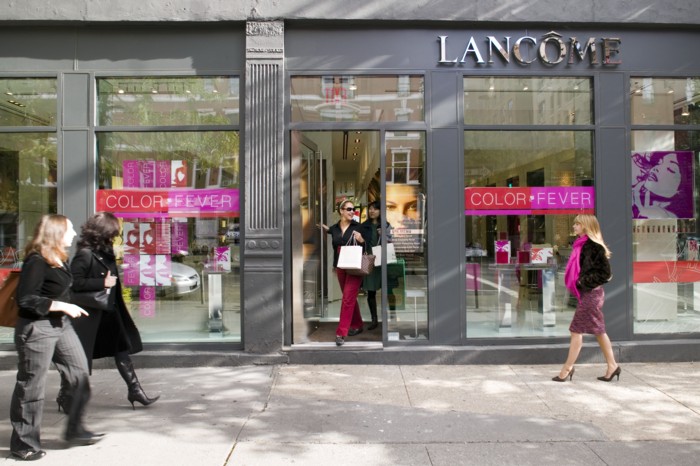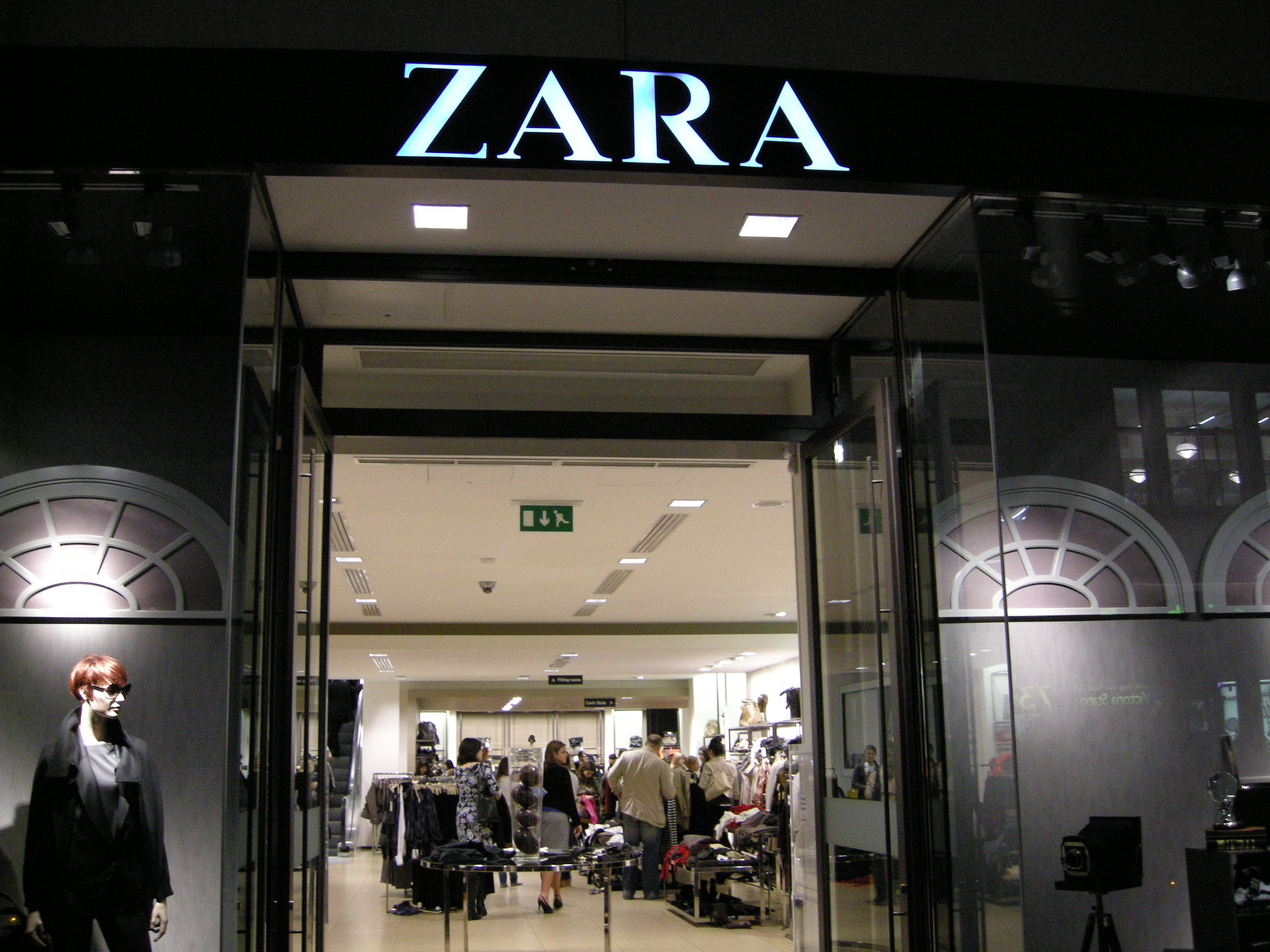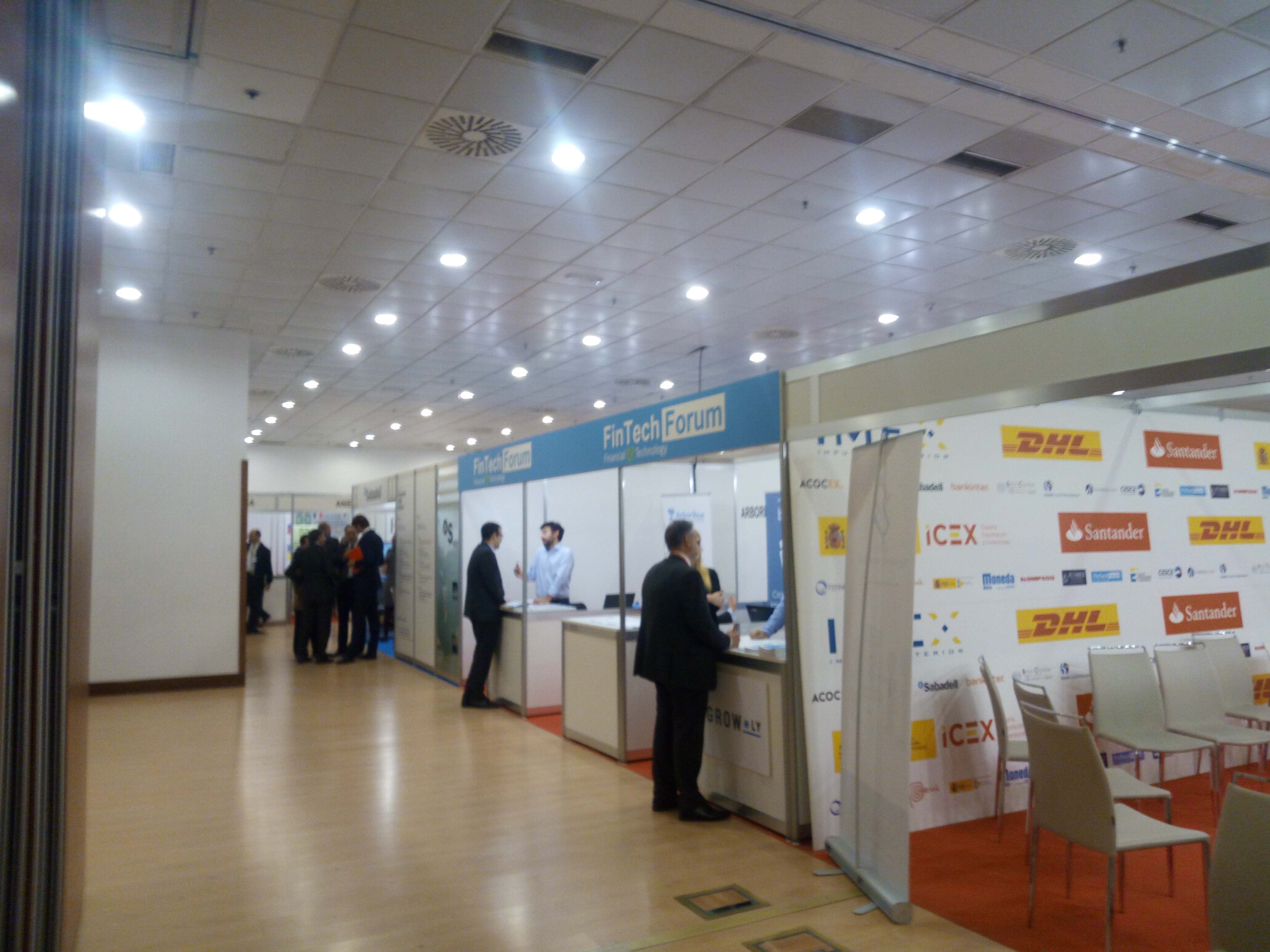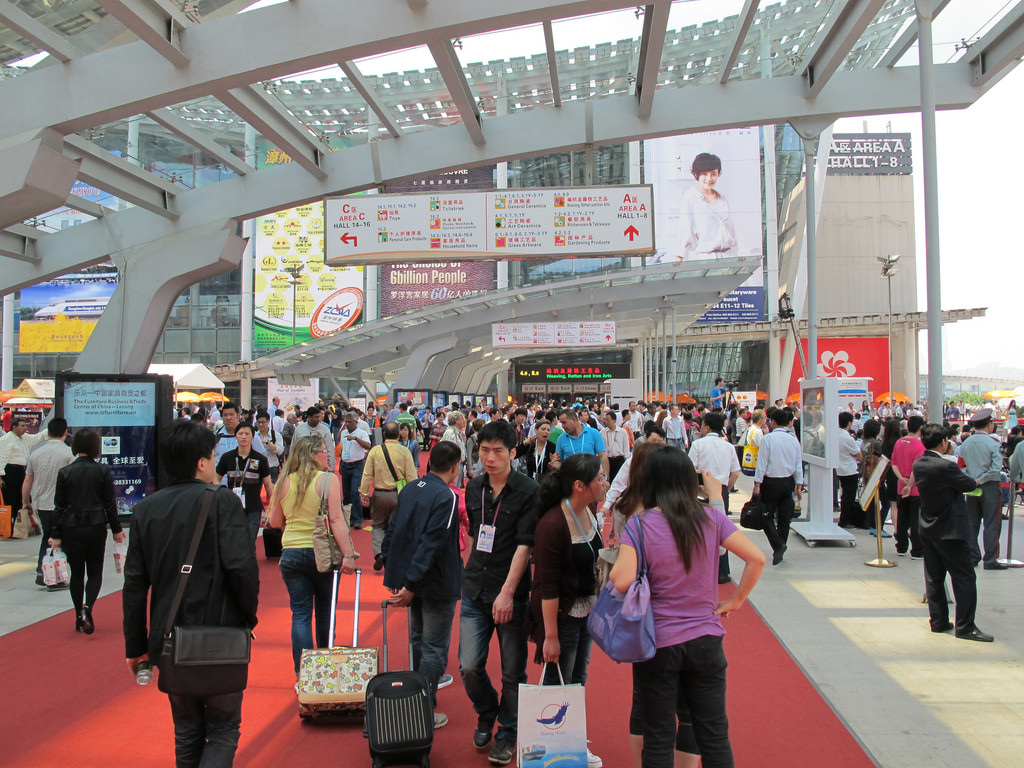How to Sell on Wechat?
Interested on learning how to sell on Wechat? Keep reading!
On 20 April 2015, China Press and Publication Academy launched their first report based on Wechat platform. With over 600 million potential customers, the Report showed the great potential Wechat has for Brands to reach new audiences in Chinese market.
WeChat is one of the most important Social Media platforms in China. Set out as a communication tool, its newest strategy has been launching the most successful mobile eCommerce platform nowadays.
For foreign companies willing to sell in China, take advantage of the benefits of using Wechat gives them the chance to enjoy its simple access to products by an easy way to pay, and also get advanced information of their customers. Its latest movements have become the app in a crucial tool to increase the consumer communication with brands and users engagement.
In order to continue adding value to our customers and launch a profitable business in China, we encourage you to go deeper on Wechat to take advantage of every opportunity that pops up in China environment.
What are the specific requirements to introduce a company on Wechat?
First, Create your Wechat Official Account:
Due to legal regulations, bear in mind that only Registered Companies in China are allowed to create their own Brand pages. Do not forget that in 2 OPEN we are authorized to apply for it!
Some are the steps you should be aware to create the account
- Fill the basic information to feature your products and services. After receiving an Email activation, configure your account.
- Choose the most suitable account type from the two options provide for the public interaction, specified in the list below:
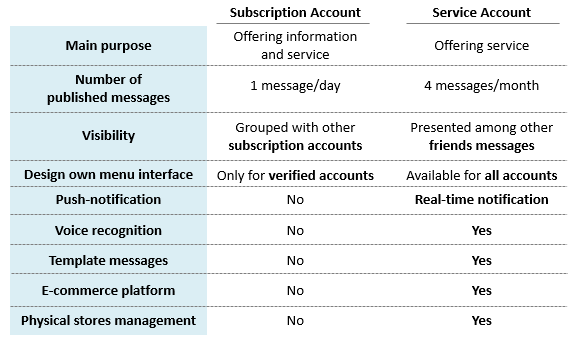
Sell on Wechat
- Once you are successfully registered, Wechat gives your company the chance to get more benefits and some interesting advantages to add value to your shop, like:
- Exclusive identifier
- Practical port
- Customized menu
- Account authenticity and security
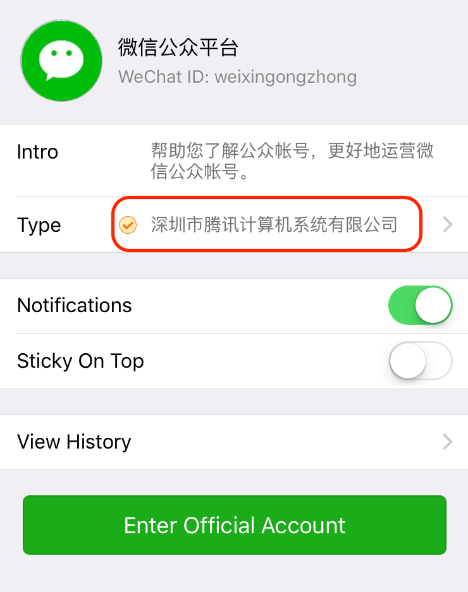
Sell on Wechat
Second, Third platform registration:
Although Wechat has its own shop, set one up via a third party platform can provide many interesting features, like:
- It is free and easy to add new items
- Gives the One-click sharing
- Contributes to faster transactions and better security on them
- Download a Mobile Ecommerce platform app according to your demands: To illustrate the post and due to the great importance of Weidan in China (微店), we will focus on it. Baked by Tencent, Weidan is based on social relationships with no centralized entry-point. It gives you the chance to post your products information across a wide variety of Social Media platforms with an ultra-streamlined registration and administration processes which make it easier to sell your services and products.
- You can create a new account or logo in your Wechat official account.
- Input your phone number to bond with the account, and the app will send a code to your phone to pass the SMS verification.
- Use the red-button to fully use the app
- Bind with your Bank-card to paying and collecting operations
- To set up your products, click on “My Products” and upload your product.
- Add pictures and fill the description, price and requirements of your products or services.
Third, Link Weidian with your Wechat Official Account:
From the back office, go to Customize Menu to edit the content in structure.
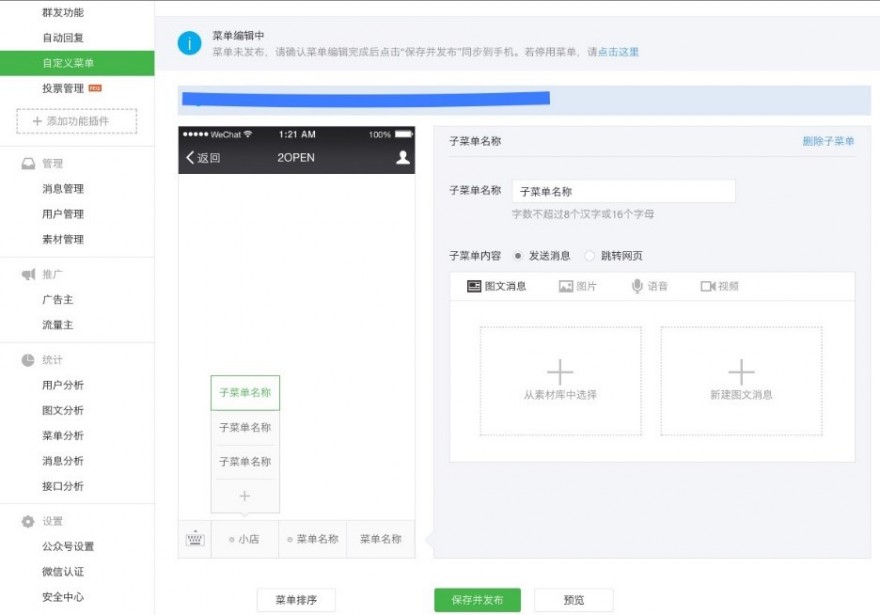
Sell on Wechat
Fourth, The final presentation to your Wechat account:
- Click the Bottom Menu (only in case you enjoy a verified account!)
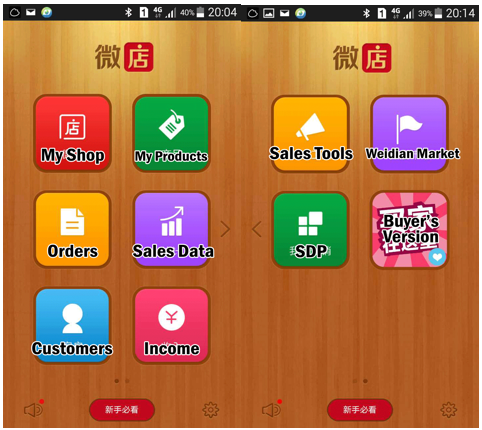
Sell on Wechat
- To get into the shop, you do reply the message. In latest version, when users enter the official account, an automatic message will present the options to follow the instruction to transfer into the Shop page.
And…done!
From the team we hope these tips will help you to understand further the latest trends in Chinese market.
At 2 Open we have the experience and knowledge to develop your business in China and become your guide to launch your business in Asia.
Still speculating about how to grow your business in China?
Get in touch with us!
This article was edited by Paula Vicuña from 2 Open.
How will the “Brexit” influence China?
“It could be the darkest day in the history of European stock market.”
“Brexit”, the abbreviation of “British exit” that mirrors the term “Grexit”. “Grexit” was created when Greece tried to exit the European Union but failed at last. And now, the Britain makes it.
“In current phase, we are not able to realize the result (of Britain leaving the EU). But definitely, the uncertainty brought by the vote result is an enormous challenge.” The CEO of Deutsche Bank, John Cryan said.
Although from the earlier public opinion polls, the financial market held a positive attitude towards the referendum, the final result really touches off a huge earthquake among the global market.
“This result will absolutely be a huge blow towards the process of European Integration!” the Chancellor of Germany, Angela Dorothea Merkel said this afternoon.
The European stock markets nosedived at the opening, especially the bank board. In the opening today, the German stock market decreased almost 10%; the British fell by 9%; the French decreased 11%; the Spanish dived 17%. The Portugal Stock Index 20 fell by 9% and touched the lowest level since 1996. And the FTSE 300 even recorded the biggest day slide on record.

The indexes in Europe jold
Also, as the final result was announced to public, the British Prime Minister, David William Donald Cameron, declared that he will resign his position in October. “I will do everything I can in future to help this great country succeed.”; “I think the country requires fresh leadership. I do not think I can be the captain to take the country to its next destination.”
We respect the final choice made by British citizens for the European issue referendum
8153km, this is the distance from London to Beijing as the cross flies. How would the final result of this referendum influence China? What are the reflections of the Chinese?
The Chinese Ministry of Foreign Affairs said that the Chinese government and the citizens would respect the choices of British citizens towards this referendum. “China has consistently developed its relations with the UK and the EU from a strategic height and a long-term respective” Hua Chunying, spokesperson of China’s Ministry of Foreign Affairs, said this afternoon.
“China supports Europe in choosing its own way of development.” she stated, emphasizing that a prosperous and stable Europe is in the interests of all sides.
“China hopes the UK and the EU could soon reach an agreement on Britain’s exit“, Hua added.
And from the social media platforms (mainly Weibo), the citizens hold mainly 2 different opinions towards the final result
– “The Brexit is an absolute bull for China, it’s a God-given opportunity.” Dan Bin, the CEO of the Shenzhen East Haven Investment Management Co. Ltd posted on Weibo showing a POSITIVE ATTITUDE:
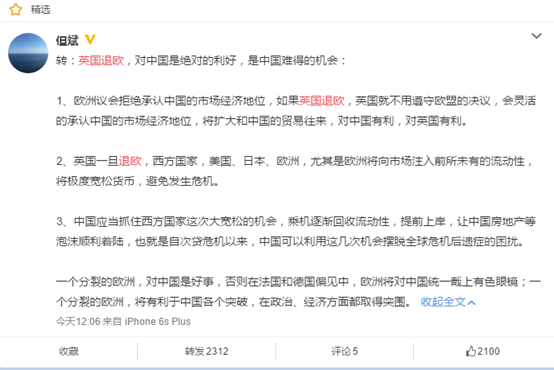
Dan Bin original Weibo post
“1. The European Parliament will refuse to recognize China’s market economy status. If Britain exits the European Union, Britain will no longer need to observe the resolution decided by EU. It can flexibly recognize China’s status and expand the trades with China. This is fruitful for both China and Britain.
2. Once Britain exits the EU, the western countries such as U.s, Japan, Europe, especially the Europe will inject unparalleled liquidity into the market. They will extremely loose the currency to avoid any crisis.
3. China should catch this opportunity to take back the liquidity, to go ashore and land the bubble of the Chinese real estate successfully. China can use this opportunity to get off the perplex from the sequel of the global financial crisis.”
In this comment, the publisher thinks that this is an opportunity for China to recuperate the domestic finance and expand the trades with Britain. He also says that this is a good thing to China, since the Europe always recognize China with prejudice due to France and Germany. A broken Europe will be benefit for China to seek for sally ports, in both politics and finance.
– But also, there are other voices that, once again, even being positive, are also MORE RATIONAL. From the comment of Ifeng news, there are 6 main effects towards China:
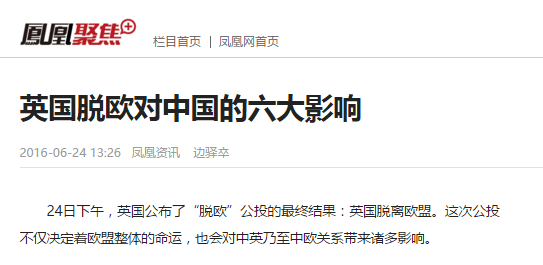
Ifeng comments on their website that have been forwarded through Weibo
“1. The students studying in Britain can save tens of thousands of dollars
If UK exits the EU, the exchange rate of Pound will crash. Thus, for people to study or travel in UK, it would be a bull. Citigroup estimates, if the British exits the European Union, the exchange rate between Pounds and U.S. dollar will fall by 10% to 20%. For the UK students, the one-year tuition would be 1.5 million pounds and living expenses would be 10000 pounds. Thus, they may save 2.4- 4.8 million yuan per year.
2. The devaluation pressure of China Yuan increases
If UK exits the EU, the exchange rate of Pound will crash. Although, for people to study or travel in UK, it would be a bull, for the short term foreign exchange market, the depreciation of sterling will lead to the appreciation of the dollar, and will cause the devaluation of the China Yuan towards the US dollar.
Economists said Britain’s leaving could make the financial market panic, leading to the capital outflows in mainland China, increasing the devaluation pressure, and challenging the monetary policy management of the central bank.
3. Yuan’s internationalization step will be disrupted
London has become the second largest offshore settlement center of China Yuan after Hong Kong. However, once the UK exits the European Union, the currency bonus will disappear. And the costs of strategy promotion in EU by Britain will also increase significantly. Chinese financial institutions need to consider dispersions to Paris, Frankfurt, Luxembourg and other places. This action will cost price.
4. Sino-EU trade cooperation will face a change
Some analysts believe that the economic impact of the British leaving EU may affect China ‘s exports, especially once the EU tend to adopt trade protectionist policies. Then, it will affect bilateral trade.
Once the UK exits the European Union successfully, the process to strengthen the strategic cooperation plans with the EU by the British will become difficult. The left is tantamount to breaking the invisible indirect cooperative ties between China and the EU, so that China had to choose other ways to press on with cooperation, and the impact from the various pre-bidding trade policies is also likely to be greatly reduced and become huge sunk costs .
5. No more ” the channel into Europe ” for Chinese enterprises
China has 500 million potential customers in the European market, however, due to protectionism, Chinese enterprises are often turned away. Britain is regarded as the most active countries within the EU which advocates free trade and investment liberalization. Thus, many Chinese companies will select the British as their production bases in Europe. And London will be recognized as a ” passage to Europe”. If Britain left the EU, may arise between the EU, the potential trade barriers between Britain and Europe will reduce the willingness of these enterprises to produce in UK. Some companies may choose to move to Brussels or Dublin, which are the areas have convenient and free market within the European Union.
6. Chinese people will be on the window period for overseas house purchasing
In recent months, international investors’ enthusiasm for commercial real estate investments in UK decreased significantly, while the sentiment increased. Some industry insiders predicted that once the United Kingdom exits the EU, the house prices in UK will fall down. When coupled with the depreciation of sterling, it will further promote the real estate market volatility, which would be an excellent “window period” for Chinese investors. Some industry insiders said that since the supply and demand relationship is still the main determinant of UK property currently, the UK house prices are still optimistic within the next five years and expected to increase about 25%. This would be more profitable for investors focusing on long-term profit.”
our conclusion
Although the SSE (Shanghai Stock Exchange) composite index fell by 1% when closed, the Chinese citizens and market now are still having a positive attitude towards this result. As per the Chinese, as what we mentioned before, they respect the choices of the British, and also their democratic rights, or at least that is what we could see on the digital walled garden build within China.
Lancôme’s PR Disaster in China and What We Should Learn From It
During this past week, Lancôme has become one of the hottest hashtags on Weibo. This time, however, being the hottest was not beneficial at all for Lancôme! Huge damage to its brand image and reputation in China has given Lancôme China an unprecedented PR nightmare.
What happened there?
On June 2nd , the actress Denise Ho (何韵诗or HOCC,), who was performing energetically at the 2016 “Occupy Central” event in Hong Kong, posted a picture about a concert invitation on her Facebook page. This concert was going to be hosted by Lancôme HK and it was supposed to take place on the 19th of June. Since Denise Ho was one of the invited artists, some netizens in China Mainland found this post and reposted it on the Weibo platform.
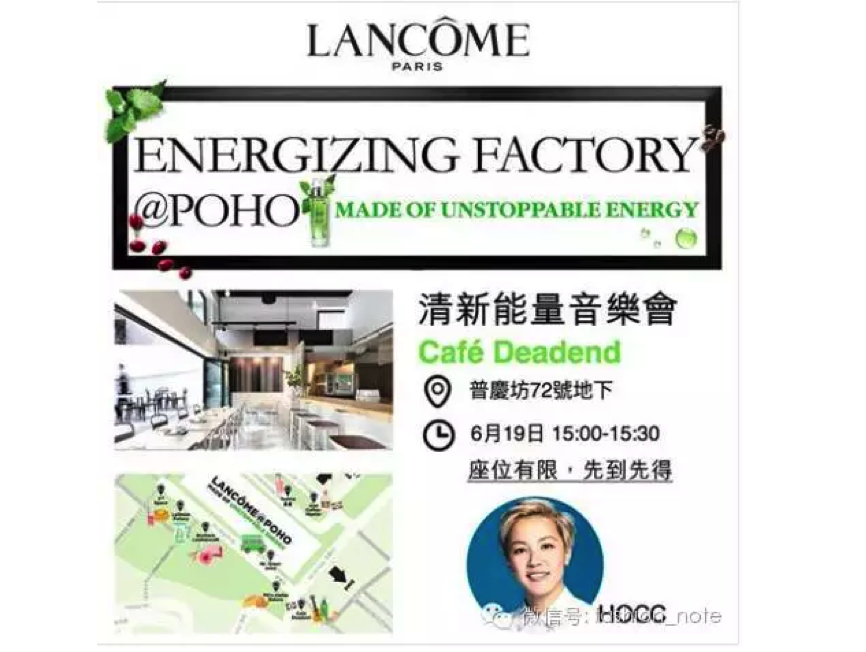
The picture posted on the Facebook page of HOCC
The news created a huge earthquake among Chinese netizens! The reason is that, for people in Mainland China, the “Occupy Central” is a sensitive topic and most of them hold an opposition towards this event. As one of the most energetic public characters who supported this event, Denise Ho was forced out of Mainland China. Consequently, in the middle of May this year, Denise Ho had met with the 14th Dalai Lama in Japan on her 39’s birthday. For the Chinese citizens, the Dalai Lama is also a sensitive character since he supports the independence of Tibet. Thus, Denise Ho is tagged as “supporter of the independence of HK” and “supporter of the independence of Tibet”.
Almost immediately, overwhelming criticisms swept all over the social media in Mainland China including Weibo, WeChat and so on, directed towards Denise Ho and all the brands that belong to L’OREAL Paris, including Lancôme.
Nonetheless, the true nightmare came on the 5th June, when Lancôme China posted an announcement on its official Weibo account shown below. In this announcement, Lancôme China stated, “Denise Ho, who is an artist in Hong Kong, China, is not the spokesperson for Lancôme China.” Although Lancôme China had just made an apology, the netizens on Weibo did not show any forgiveness. Contrary to what Lancôme China expected, the netizens began to create hashtags like “Against Lancôme”, “Against L’OREAL”, and some of them with comments like “never use any products of Lancôme”.
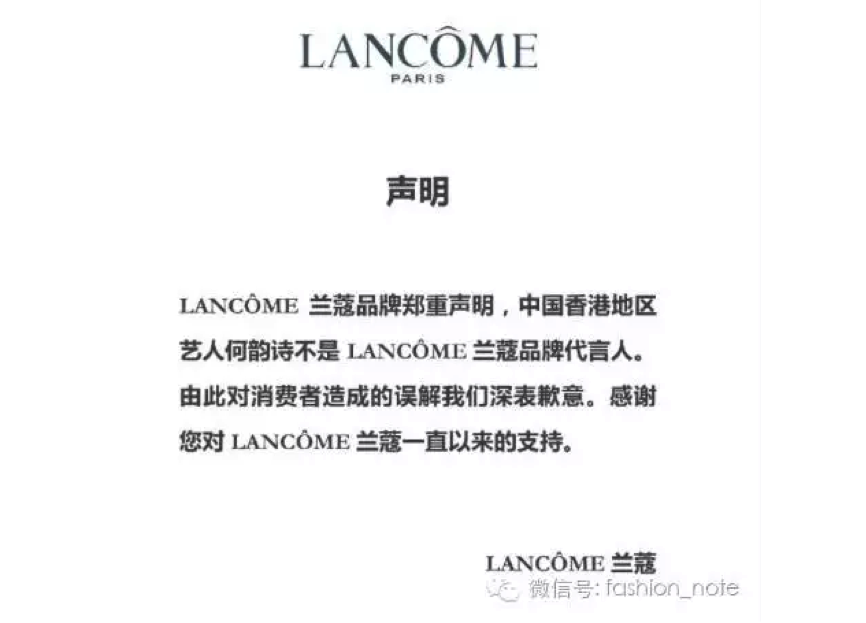
The announcement of Lancôme on Weibo, 5th June 2016
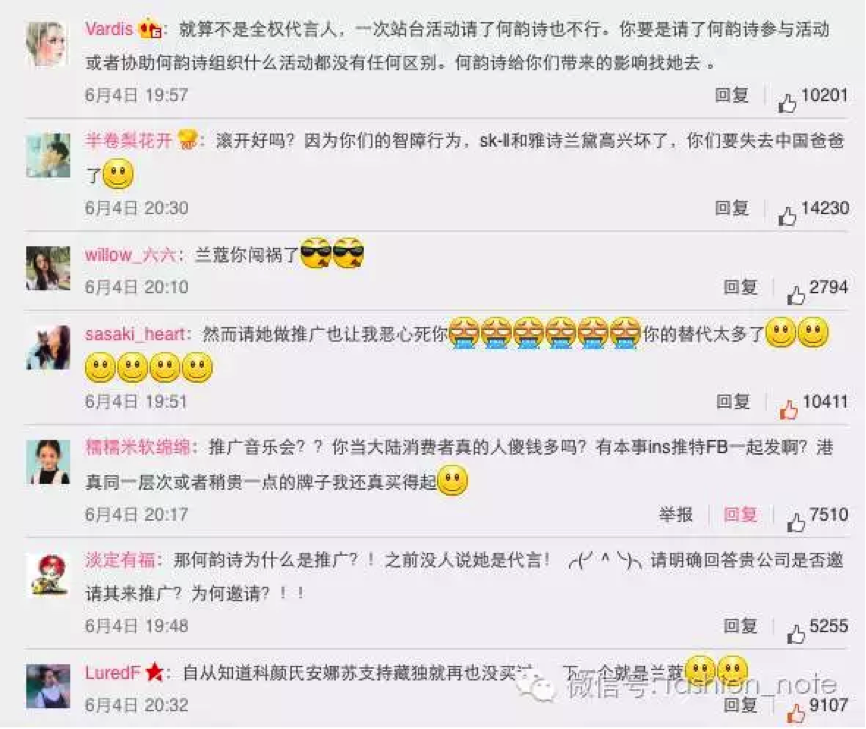
The criticisms made by large numbers of netizens
Under the huge pressure of public opinion, Lancôme China announced that they would stop all the cooperation with Denise Ho immediately. In addition, Lancôme announced that the concert was going to be canceled due to security reasons.
On 7th June, the authoritative media in Mainland China – Global Times, published an editorial directed towards this event, named “Who’s responsible for Lancôme being implicated by the artist who supports “Occupy Central”(兰蔻因“占中艺人”受牵连,谁之过) ?”. In this article, Denise Ho was blamed directly and it was pointed out that: the Chinese netizens will never show mercy to anyone who wants to “eat the Chinese dishes but break the Chinese pot”.
This whole chain of events has reached an international level. In France, some netizens wrote e-mails to the headquarters of Lancôme HK, and also announce online that if Lancôme does not reinstate the spokesperson position of Denise Ho in Hong Kong, they will resist against Lancôme in France.
Now, not only Lancôme China, but also the Lancôme Group, or even L’OREAL Paris, are facing this emergent PR crisis. With the words from the Global Times, Lancôme is now in a “Catch 22” situation and everyone who is following this event is waiting for the new PR progress of Lancôme.
What can we learn from this PR crisis?
Many international brands should conduct careful background researches before choosing their spokespersons, not only in China, but also in the rest of the world. The spokespersons can always influence the brand’s image and reputation if their behaviours are controversial.
Nowadays the Internet is developing rapidly, especially in China, Social Media platforms, such as Weibo, have become an important tool for information sharing, promotions, news, articles reading, etc. At the same time, due to 2 main properties of social media, which are divergence and interaction, any information shared on social media has the risk of causing bad influence or the opportunity of creating good reputation. Thus, evaluating information from all different angles before sharing is necessary and could, and should, avoid misunderstandings or even criticisms as much as possible.
Also, as a brand or a company, which is related to business, it would be better if we could apply “Business is business” in practice. Especially when promoting in China, try to avoid touching the baseline or sensitive topics, which might be dangerous.
Marketing in China is especially different from other parts of the world, trust us when we say, you do not want to have a problem like the one from Lancôme, so, why not let us do it for you? With our multiple offices in Europe and China, we build bridges between your business and the Chinese market sustaining competitive advantage, focusing time and maximizing the budget.
If you have any questions or require any information about our services, please do not hesitate in contacting us, our group of specialists will happily assist you.
This article was edited by Andres Arroyo Olson from 2 Open.
References:
http://opinion.huanqiu.com/editorial/2016-06/9011621.html
http://www.hzpgc.com/article/content/7262.html
http://www.bbc.com/zhongwen/simp/china/2016/06/160607_ana_heyunshi_hongkong_china_market_lancome
How can foreign SMEs be competitive in China?
Most western economies enjoy an abundant offer of qualified talent that proportionally lacks in China. Nevertheless, China’s macroeconomic situation is starting to increase the demand of qualified talent, and more importantly, it is starting to value it more, rewarding it in ways that we do not often see in other economies, or at least not back in Europe.
All of this creates a reality of scarcity due to the fact that an increasing amount of knowledge is being accumulated in just a few hands and results in a division between talent knowledge and labor knowledge. When competing in the knowledge market, being capable of assembling a talented team is the key difference that will give you the competitive advantage.
Big companies and well-funded start-ups are very aware of this fact, they put a lot of effort and invest a lot of money on the recruitment of talented personal.

So what about small and medium-sized enterprises then? What can they do in order to be competitive as employers in the Chinese market? And what can they do when big foreign companies tend to concentrate on tier 1 cities candidates that have good English communication skills?
The questions mentioned above have very difficult answers. Truth be told, most foreign SMEs in China have no chance of succeeding, or being competitive, as an employers in such a shark tank, that is, tier 1 cities. Looking at it from a market perspective, tier 1 cities are a horrible place to build and sustain a capable and long lasting team.
Probably, trying to move out of a tier 1 city is the first advice for foreign SMEs. Even if the idea of living in a truly Chinese city, without Starbucks or McDonalds hanging around, frightens you, it will make it a lot easier for you to grow your company. The only real issue here is that clients and movement is mainly happening around cities like Shanghai and Beijing and less in other cities, nevertheless there are plenty of other means through which you can get clients. At the end of the day there is no perfect place to grow your business without a few drawbacks, maybe once your company has grown enough you could consider moving to a tier 1 city.
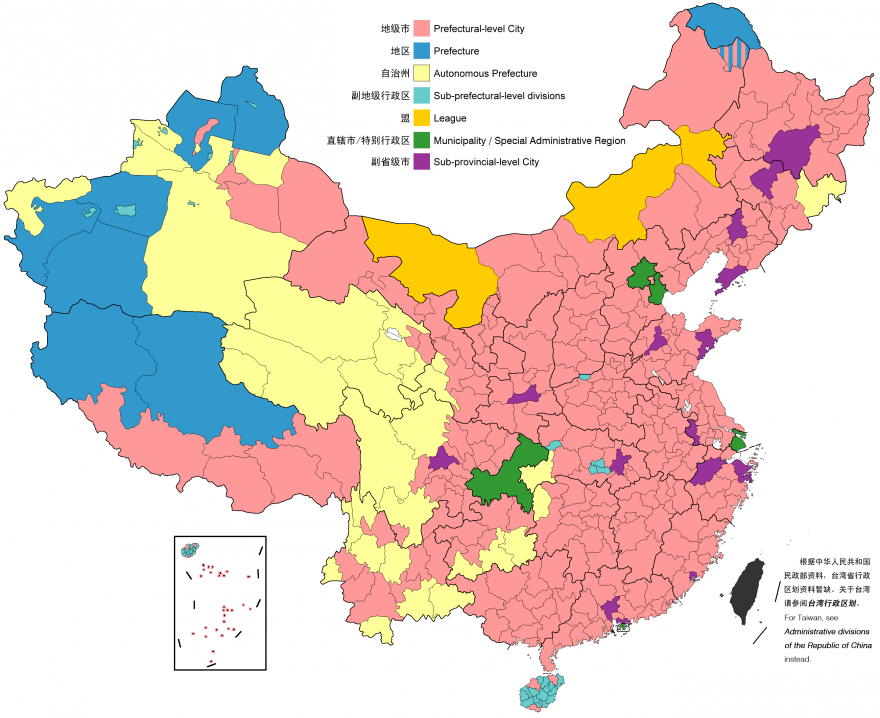
It is worth mentioning, however, that finding clients is the first stage of every business, that initial stage where it is considered a top priority. With its years of experience, 2 Open has long surpassed that, right now, finding clients is for us only a secondary priority. We are now focusing in process excellence, in nurturing scalable ways of working that continuously add value to our clients, keeping a stable and financially balanced organization that will last for many… many years…
This is one of the main reasons why our company does not only have offices in Weihai and Cáceres, but is based in Shanghai and Madrid. We are constantly making changes in order to maintain competitive advantage, we have already been in the market for 3 years and we are preparing for the upcoming 30. We strive in order to offer reliable, sustainable and long term oriented solutions that add value to China as a whole, not only its tier 1 cities
Probably you do not think that moving to tier 3 in order to assembly a powerful team is something you would like to do yourself. Well, do not worry about it. If you want to know more about how we work and how we help, engage, support, and lead our clients to succeed, contact us. We DO Open. Do you?
This article was edited by Andres Arroyo Olson from 2 Open.
Do other e-commerce platforms stand a chance against Tmall?
All of us are very well aware of the magnitude of the Chinese online market and, although it is currently the largest e-commerce market in the world, most of the market share is owned by the Chinese e-commerce giant Alibaba. Nevertheless, there are some other companies that also want their piece of the pie and with their vertical e-commerce platforms they are starting to put up a fight. This article will focus mainly on those vertical platforms that constitute an important part of the diverse Chinese e-commerce environment.
In the 4th quarter of 2015 China’s online transactions surpassed 644.38 billion RMB, the pie chart shown bellow contains the market share of the top ten Chinese e-commerce platforms:
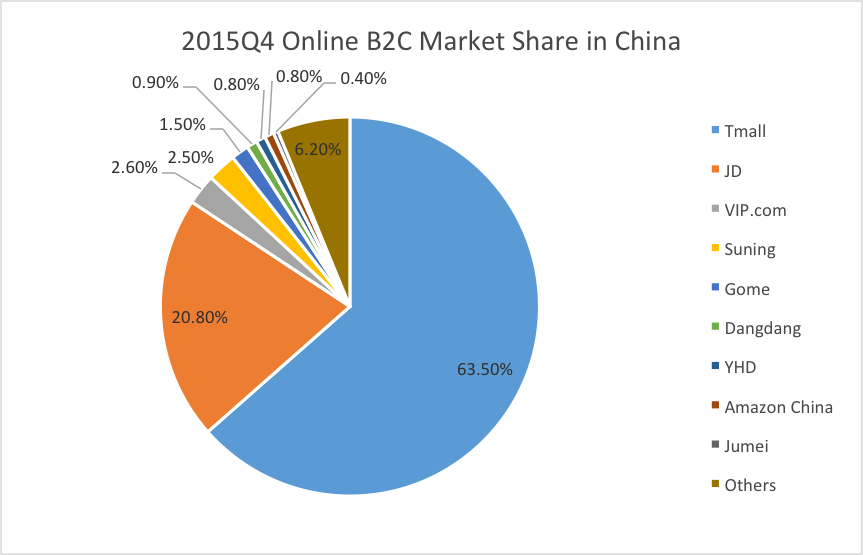
Before we continue, we first have to clarify the concept of vertical e-commerce. In this context, vertical refers vendors that offer goods and/or services that are specific to an industry or customers with specific needs. A vertical e-commerce platforms could be a independent brand or a specified category within a wide range of products such as clothes, 3C (computer, communication, and consumer electronics) products, cosmetics, etc.
If you already have a basic understanding of the Chinese e-commerce market, then you are probably familiar with JD.com. Currently the second e-commerce platforms in China after Tmall (owned by Alibaba Group), JD.com started as a 3C products vertical B2C website. Now, let us take a look at the market share of 3C products in China B2C online market:
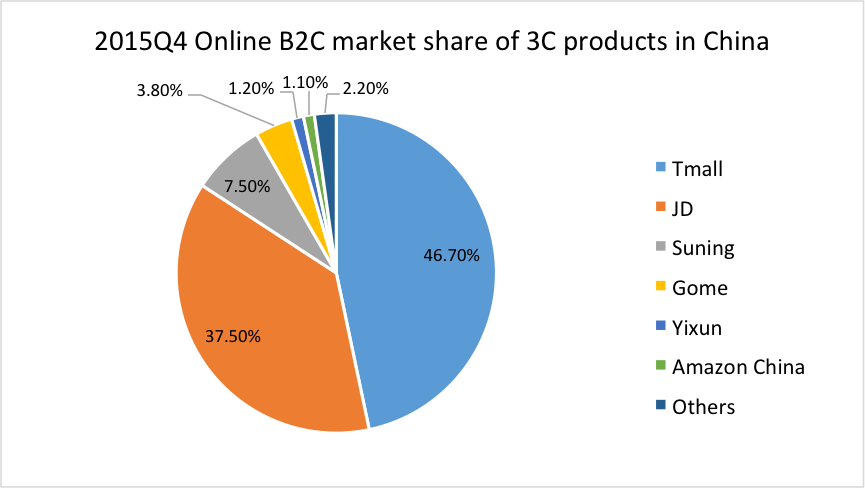
Although Tmall is still on the first spot, the difference in market share of JD.com is considerably higher than with regular products. Tmall and JD.com combined own more than 80% of the Chinese 3C products market. Suning, on the 3rd spot, and Gome, on the 4th, both also started specializing in 3C products, however, nowadays they have also diversified their range of products. At the end, it seems that there are no actual vertical platforms anymore.
To study the online market, we cannot miss the biggest category, clothes. In the 4th quarter of 2015, the total transaction of clothes is 235.57 billion Yuan, market share is shown below:
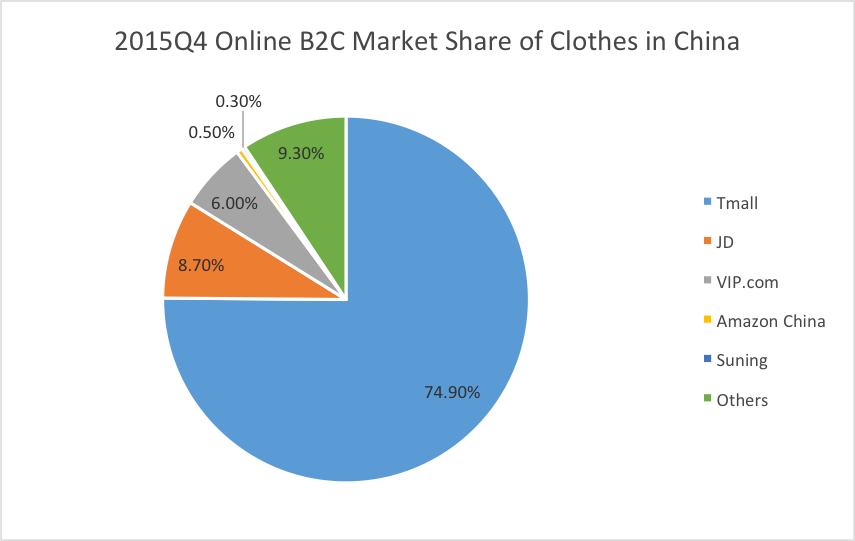
In this case, Tmall is leading with an absolute advantage of almost 3/4 of the market share. In this category, JD has 8.7% of the market share, VIP.com has 6%, and surprisingly others do not even have 1% individually, so from the big picture the vertical market for clothes is not active enough.
Another category that has had such a rapid growth we cannot ignore is the maternal and children products. Shown below is a pie chart containing China’s maternal and children products market share figures of major competitors in the last quarter of 2015:
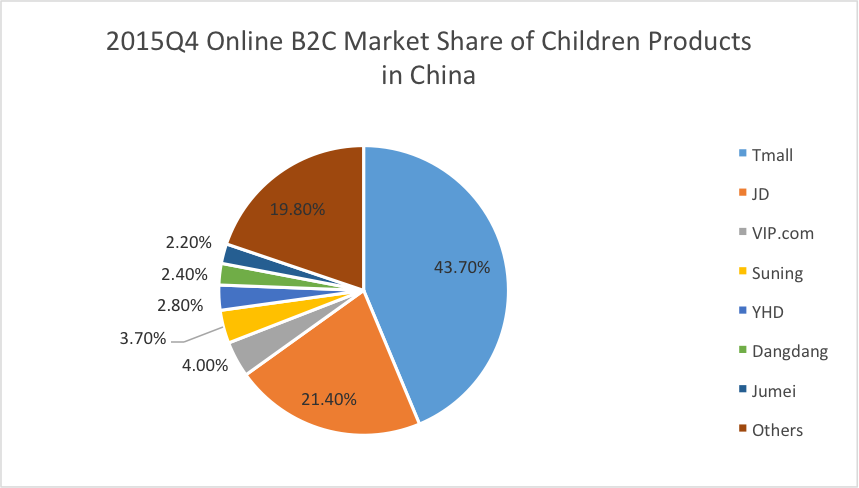
The most noticeable difference in comparison with other categories is the porcentage own by other platforms that adds up to almost 20 %. Although Mia, Beibei, Babytree and others are in that 20% it is still a big figure. In this category Tmall and JD.com own less than 70 % of the Chinese clothing market, so we can say, to some extend, that there is still space for vertical players.
The next category is books and, even though the books total transaction was just 5.31 billion Yuan, the market share gives us a slice hope of competing with general platforms, in this case Dangdang is leading with 43.8%, and Tmall is only on the 3rd spot, just after JD.com.
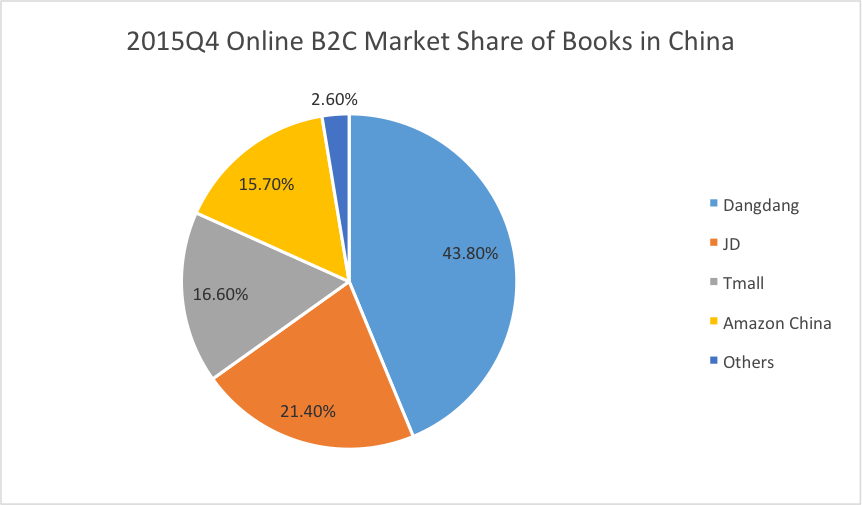
Finally, we cannot say all vertical online platforms are dead in China just because most of the categories are gloomy, there are still some worth a try, and you just need to know enough about the current situation. If you don’t, luckily you saw this article, and you know 2open can always help you to find the right channels. So don’t hesitate, contact us now!
All in all, even though Tmall dominates in the Chinese market, there is still space for other platforms to flourish. Vertical e-commerce platforms seem to be the wisest option, specify in a certain category, gather information about the current situation in the Chinese market, and carry out your business plan. If you need further information about the market, would like to help you find the right channels, or want us to set up your business in China, do not hesitate in contacting us. Our group of specialists will happily assist you.
This article was edited by Andres Arroyo Olson from 2 Open.
References.
All products data from
http://www.analysys.cn/yjgd/17684.shtml
3C data from
http://www.analysys.cn/yjgd/17676.shtml
Clothes data from
http://www.analysys.cn/yjgd/17678.shtml
Children products data from:
http://www.analysys.cn/yjgd/17680.shtml
Books data from:
Insights on ZARA in the Chinese digital market
Since first arriving to Shanghai in 2006, ZARA has had incredible achievements in the volatile Chinese fashion industry. Etam and Ochirly used to be considered as the “King and Queen” in this sector with the vast majority of the market share, however ZARA’s arrival crashed down this obsolete structure. In 2014, ZARA reached the top fashion brands in China, earning twice the revenue of Etam.

-Zara’s first Chinese store at Nanjing West Street in Shanghai.
In the same year, ZARA opened its official flagship store on T-mall. This is not the first step ZARA takes towards the Chinese digital market, in 2012, ZARA set up its own online shopping website “The ZARA China” and also published an m-shop application“ZARA”.

-ZARA China carries on with clear style.

-ZARA’s mobile application for IOS.
Despite all of this, the big brand’s official website is often tasteless, sort of similar to the one from Dell. Dell’s official Chinese website actually used to be the largest e-commerce platform, however, nowadays it has become a more passive marketplace. Apple is also a good example to illustrate this, its official e-shop is beautifully decorated, nevertheless, Chinese users rarely to buy any products on it.
The main reason for this is because e-commerce not only involves the build up of a simple website. It requires collaboration throughout the supply chain, especially the logistics, and of course, the follow-up services.
For many international brands, including ZARA, the option of building up the infrastructure to cover the broad Chinese market is perhaps not as profitable. Thus, it is essential, and more appealing, to cooperate with the third-party platform like T-mall.
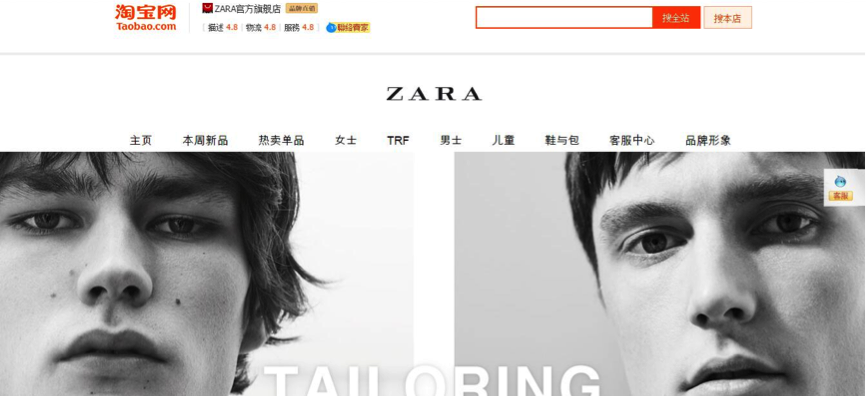
-The frontpage of ZARA on T-mall
Why did ZARA choose T-mall?
Many people thought the main reason was that ZARA wanted to catch up with the “11.11” festival on T-mall, which is the Chinese version of Black Friday. However, based on the opinions of many insiders, the market and the decrease on revenue in 2013 forced ZARA to set a foot on e-commerce.
-In 2013, its growth rate of net profit was less than 1%, which was its worst performance in the past five years.
-For the first quarter of 2014, its revenue increased by 4.3%, but net profit fell -7.3%. In contrast, in the past three years, it has maintained double-digit growth in net profit. When the results were published, Citigroup cut its TSP down from 130 to 120 euros.
-In May 2014, the monthly sales reached 60 million yuan, and consequently in June, the headquarter announced the plan to cooperate with T-mall, saying the shop would officially be settled soon.
-As for 2015, the growth rate on revenue increased 20%, and the market performed positively.
We can safely determine now the main reasons why a big company like ZARA entered the Chinese e-commerce scene. They can be summarized as the following:
- E-commerce is a leading trend of buying behaviour in China and the amount of people buying things online is rapidly increasing.
- This is a good way to promote ZARA itself on second and third tier cities, as it seldom makes advertisements.
- The Chinese e-commerce contributes to the highest growing rate of GDP in the world.
- The business model of T-mall and its fellow platforms just fits the needs of ZARA – Small amount but multiplicity.
All in all, e-commerce seems to be the way to go in China and who else to help you than 2 Open. Our goal is to understand our clients business needs in order to provide the best possible services. If you have any questions or require any information about our services, please do not hesitate in contacting us, our group of specialists will happily assist you.
This article was edited by Andres Arroyo Olson from 2 Open.
2 Open keeps growing in Europe with our new office
The 2 Open family keeps growing in order to continue adding value to our customers within the global business world in which we live. China and Europe are now connected with four powerful offices (Shanghai, Weihai, Madrid and Cáceres) that clearly represent what we are and where we want to go; it represents the future and our origins making sure they align with our goals and our customers’ needs.
A business is like a living organism; it has a beginning, an end, and in between goes through a lot of stages that make the difference between success and failure. 2 Open is undergoing one of these stages in which we have decided to grow our organization in Europe to help your business development in China. What we are trying here, is to do the best we can at each and every stage and always think about what we have done, about the errors and successes, about the good and bad decisions, about the loyal partners and the ones that were not loyal, about the people who have accompanied us, learning from all these factors in order to, not only improve and grow as a business, but also as individuals.

I write these lines from our new office. Located in the heart of the Spanish capital, Madrid. It is a three floor co-working space that was an old factory back in the 20’s. Each floor has a 420 square meters open-plan area with huge windows, 5 meters high ceilings and decorated in modern style. We have a meeting room, photography/video studio, reception, relaxing area, and a huge space to do events; we want to organize an event related to China digital industry very soon and you will be more than welcome to assist.

Co-working is a global movement based on a simple concept: professionals from different sectors, freelancers, entrepreneurs and businessmen, share the same physical space to work on their own projects. But co-working is not only about sharing costs and breaking the isolation, it is also about belonging to a community of individuals who are open to exchange ideas, projects, knowledge, and most importantly, they are willing to collaborate. Co-working spaces are sprouting all over the planet; it is a global movement that is changing the way we work and the way we interact in workspaces. Co-working spaces are a reflection of the emergence of new models and new expectations in the business world and society in general, and 2 Open, is definitely going to leverage the advantages of these positive features. We will collaborate to get fresh and innovative ideas, resulting from interactions with other co-workers.

Come and visit us in our brand new office. We will be glad to chat with you about our passion: DIGITAL MARKETING IN CHINA and HOW TO DEVELOP YOUR MARKETING AND SALES in the Chinese online market.
This article was edited by Andres Arroyo Olson from 2 Open.
L’Oreal Digital Marketing Campaign in China
In the first half of 2015, L’Oreal’s financial statement reported revenues of 12.82 billion euros worldwide. In comparison with 2014, there was an increase of 14.7%, which is the fastest growth that the company has had in the past 20 years. Its digital marketing campaign was not the exception, with an outstanding 40% increase in online sales, exceeding 1 billion euros; it represented 5% of the company’s total turnover strengthening its position in the online market.
Nowadays, in the cosmetic & beauty industry, 70% of customers search products online before they actually buy them, which means that social media must play a big role in this. Why? You might be wondering, well, the importance of knowing consumer’s needs and preferences enables companies to come up with tailored ads and maximize their marketing budget. Many industries have transitioned from the classic marketing model into its modern version to further understand consumers and optimize results.
It seems that the upcoming era is digital, the society now is constantly connected with their mobile phones, and people are interacting on social media all the time. Most Chinese people love to share moments of their daily life via Weibo or Wechat, these social mobile applications gather a lot of Chinese young people who are potential online buyers, this is one of the main reasons why this new consumption model results so profitable.
Taking all of this into account, L’Oreal, the global beauty brand, keeps track of trends and maintains strong competence in the Chinese online market. The business credo for the marketing industry “where are the consumers, where are we” is practiced well by L’Oreal. In fact, in the digital marketing revolution, L’Oreal is not only expanding its e-commerce channels, they also apply a complete strategy to digital marketing.
All the product and services have to be digitalized
For instance, on the CES conference in Las Vegas, L’Oreal released a patch for sun-induced skin damage – My UV Patch, helps users track real-time ultraviolet exposure damage on the skin with the help of an App. In addition, L’Oreal has also launched a mobile App called Makeup Genius. The App can help users find their own appropriate makeup. Most Chinese people are shy and they do not dare to try exaggerated makeup, with this App users can try hundreds of makeup options and share on various social platforms. In the future, L’Oreal will try to launch more service-oriented App.
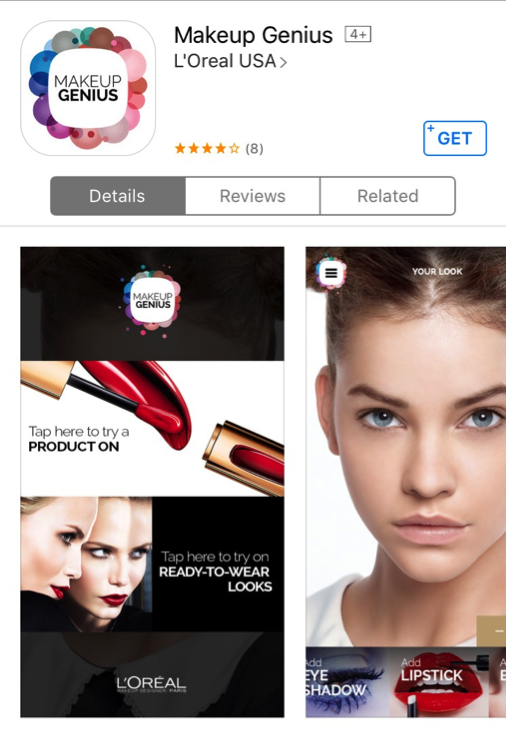
-L’Oreal APP for IOS
Digital involvement into every step of decision-making
In the buying decision process, customers experience 4 steps: identifying, considering, purchasing, and sharing. L’Oreal gets involved in every step of the process. For brand awareness, they launched a video advertisement on the entire media platform of Weibo and Wechat. For the decision-making stage they issued a series of makeup tutorial videos on Youku and finally let the users use social media to share their purchasing experience. With this, the entire consumer decision-making process is digitized.
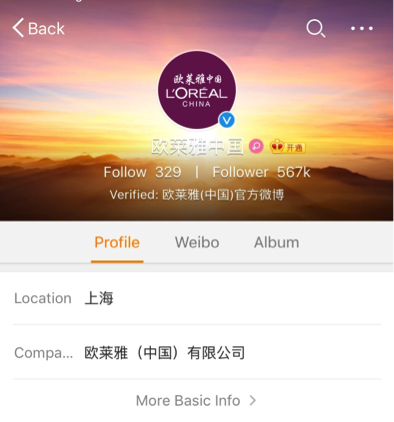
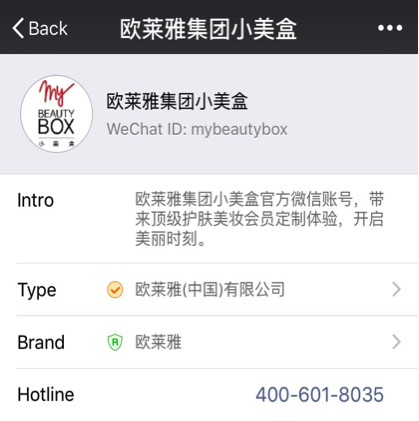
-L’Oreal official account on Weibo and Wechat
Take this case for example, in the 2015 Cannes Film Festival; L’Oreal launched a video advertisement on Wechat, where L’Oreal’s stars would post their pictures and voice message saying “I am in Cannes, will you come? ” and a link to L’Oreal’s e-commerce page. Through this event L’Oreal attracted a lot of fans and potential customers, and the brand’s social influence was digitalized.

-L’Oreal Cannes Event on Wechat
All brands on digital platforms
Based on the first two points, L’Oreal Group including Lancome, Maybelline, L’Oreal Paris and other brands, try to position themselves, as much as possible, on various digital platforms, that is, “where are the consumers, where are we”. Since, nowadays, almost all of the customers are online, L’Oreal has to be searched and discussed as much as possible by customers in order to gain more popularity in the digital world.
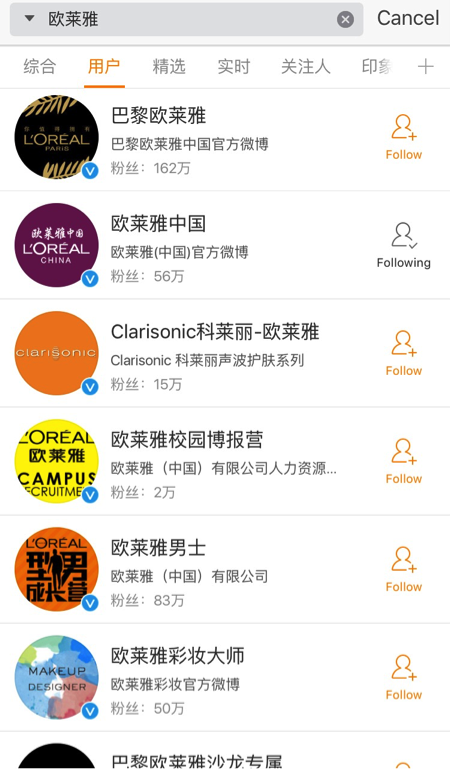
-L’Oreal brands on Weibo
When analyzing L’Oreal’s digital marketing strategy, it is worth noticing that this giant enterprise takes digital marketing as a key element of responding to the rising demand among beauty consumers. The O2O (online-to-offline) model gradually drives the enterprise transforming it into a new business model. Digital marketing could not only develop a new market but also help to create a new CRM (Customer Relationship Management) system for other companies. We believe in the future and Chinese digital marketing will become more and more important in the following years.
Have you learned Chinese yet?
If you have any questions or require any information about our services, please do not hesitate in contacting us, our group of specialists will happily assist you.
This article was edited by Andres Arroyo Olson from 2Open.
IMEX IMPULSO EXTERIOR – 2016 MADRID
The successful International Business, Investments, Products and Services Fair aimed to improve SME competitiveness; IMEX Impulso Exterior took place last April 6th and 7th in Madrid, at the Marriott hotel Auditorium. The main objective of the event is to promote international overseas Spanish companies and bring together well-regarded and experienced professionals in the field.
More than 90 speeches took place in many specific rooms and stands, focusing in the different relevant and necessary topics dealing with international processes, international development, and international business. Moreover, there were some gourmet brands stands in which they were offering samples of high quality products and having conversations about new international markets possibilities…
2 Open was at the event focusing on international possibilities of SME companies and, of course, paying attention to every event related to China. We attended to a presentation about the current situation in China and how to reach businesses within China and Hong Kong.
All in all, it was a very insightful event with a vast variety of companies that had a lot of things to share. In 2 Open we like to be updated when it comes to business in China in order to provide the best possible services to our clients. If you need partial or full consulting do not hesitate in contacting us, our group of specialists will happily assist you.
2016 Springtime At The Canton Fair
The Canton Fair, held since 1957 in the city of Guangzhou, is currently the largest International Trade gathering in China, and the most successful one in the country. In Spring and Autumn, and for fifteen days, the city brings together importers and exporters from all over the world.
Its 2016 Spring celebration, divided into three sessions of five days each, aims to meet the demands of any business person: Electronics and Household Electrical Appliances; Lighting Equipment; Vehicles and Spare Parts; Machinery, Hardware and Tools; Building Materials; Chemical Products, Energy Resources; Consumer Goods; Gifts; Home Decorations; Textiles and Garments; Shoes; Office Supplies, Cases and Bags; Recreation Products; Medicines, Medical Devices and Health Products; and also Food.
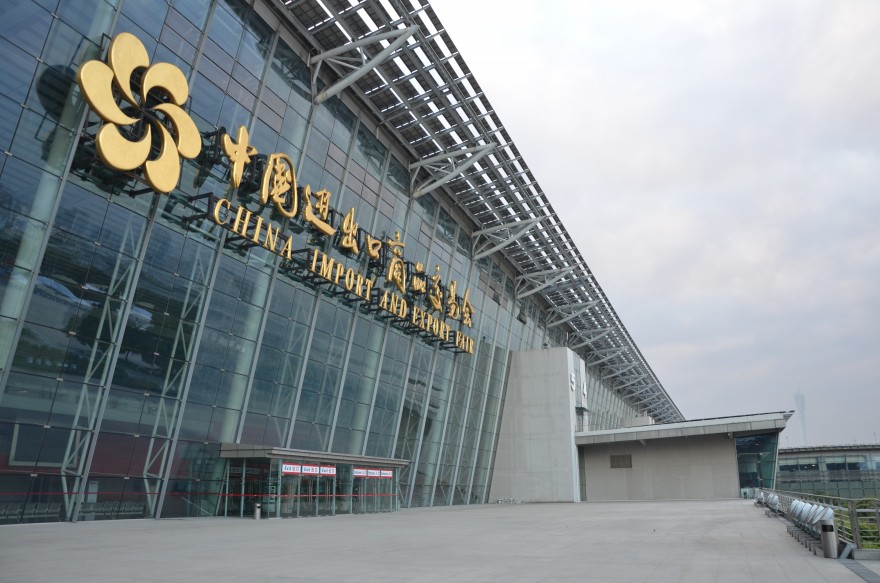 But why exactly is this event so appealing?
But why exactly is this event so appealing?
Well, with 15,000 manufacturers and fabricants, and over 60,000 stands, it’s not a surprise that it has gained such popularity, besides, its ability to accommodate all of them and generate new trade flows makes it the largest fair in China, and probably in Asia.
Those who attend The Canton Fair can find answers to all of their business needs: economic, technical and human cooperation; logistics, transportation and distribution; insurance and commodity inspection; advertising, public relations and contacts with some of the most buoyant businesses today, you name it.
Its attractiveness is also equal to its capacity to generate wealth among its members: only in 2015, commercial exchanges reached 55.066 million USD.
Who attends to the Canton Fair?
Despite the uncertainty in the global economy and after a slight decline in the last two years, 2016 has been considered a good year to participate in the Canton fair. With more than 24,000 companies confirmed, optimism among the organizers and participants has returned to stay and strengthen the fair’s position as an already global event.
Although the event’s main target group were Asian buyers, in recent years, the presence of Westerners has grown significantly becoming a meeting of international nature in which the presence of developing regions such as India, Latin America and Africa has also increased. Curiously enough, the presence of participants from Hong Kong and Taiwan has been reduced each year.
What are the benefits of the Canton Fair?
Firstly, the continuous and growing exchange of goods between participant countries facilitates the development of the Chinese trade, and consequently, strengthens the Chinese economy.
Secondly, the Canton Fair celebration generates high-level synergies, not only among the participants but also among outside companies. The fair generates quality information on the future of the economy, the most demanded products, leading companies and, goods and services.
Finally, due to its attraction capacity and longevity, the fair has contributed to develop a wide range of alternatives for visiting and enjoying the tour: visas, tickets, hotels and translators are easy to obtain through specialised agencies.
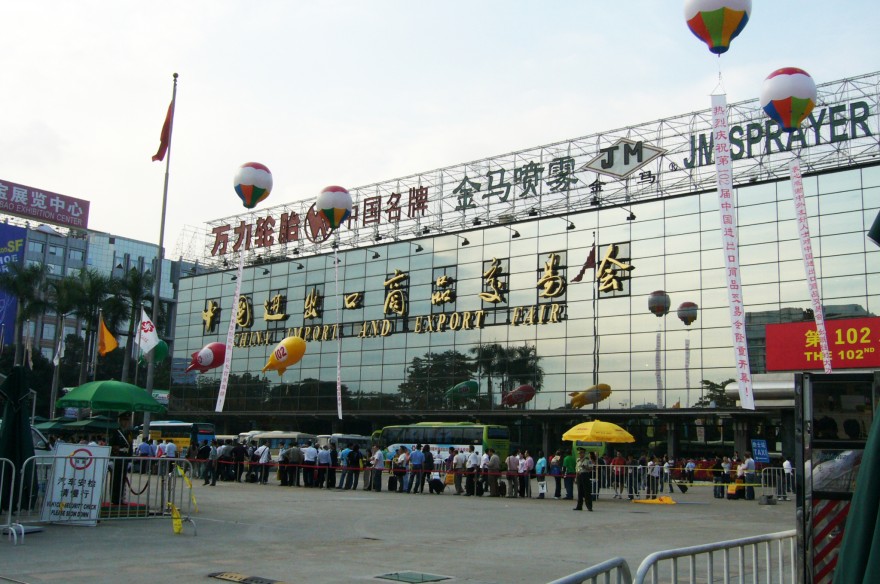
2Open attends every year to both the Autumn and Spring Canton Fairs, being up to date with what is happening in China is a challenge even for our dedicated team who are constantly on the scout for new trends in the industry. We strongly advice anyone who is intending to engage in any business related activities with China to attend this event, it is a great opportunity to grow any business, however, if you want to really turn your business around you should contact 2Open.
Our goal is to understand our clients business needs in order to provide the best possible services. If you have any questions or require any information about our services, please do not hesitate in contacting us, our group of specialists will happily assist you.
This article was edited by Andres Arroyo Olson from 2Open.




